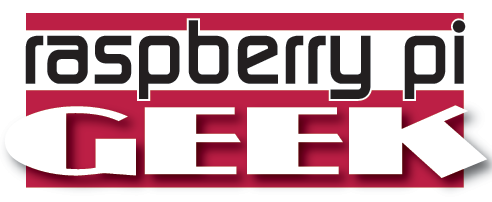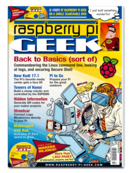New Raspberry Pi Kits for Windows 10 IoT Core
Microsoft has announced the availability of two new starter kits for Windows 10 IoT Core, one by Adafruit and another by Seeed Studio [1].
Microsoft's IoT division partnered with Adafruit to offer the upgraded version of their Windows 10 IoT Core Starter Kit. The upgraded version comes with a Raspberry Pi 3, whereas the older version is bundled with the Raspberry Pi 2.
The new kit is available for the same price of $114. The kit is certified to be used with Microsoft Azure, as well as other compatible Azure-certified operating systems. Even though it's a Windows 10 IoT kit, Adafruit says the kit can also be used with Raspbian Linux and Python.
In addition to the whole range of electronics components, the kit comes with an Adafruit Raspberry Pi B+ case, a full-size breadboard, male/male jumper wires, female/male "extension" jumper wires, 5V 2A switching power supply with a 6-foot microUSB cable, assembled Adafruit BME280 temperature, pressure, and humidity sensor, assembled TCS34725 RGB color sensor, Ethernet cable, and a 16GB SD/microSD memory card with NOOBS.
Adafruit is also selling a kit without the Raspberry Pi 3 for $75.
The second kit, called Grove Starter Kit for IoT based on Raspberry Pi, is being offered by Seeed Studios. The kit comes with a GrovePi+ board, a 5-inch LCD screen, and a wide range of sensors, including an ultrasonic ranger, temperature and humidity sensor, rotary angle sensor, light sensor, and many more. The most notable feature of this kit is Grove connectors that allow makers to connect different components without soldering. Seeed worked with their partner Dexter Industries to design the kit around Grove connectors, which also means these kits are more expensive than the Adafruit kits. Seeed Studio is selling the Starter Kit for $154.99 without the Raspberry Pi 3.
BBC Announces micro:bit Education Foundation
BBC has launched a non-profit foundation for its micro:bit project [5]. Zach Shelby, former vice president of marketing at ARM, will head the foundation as its CEO.
According to Sinead Rocks, head of BBC Learning, "It's a non-profit, independent organization that will build on the work done so far with our pocket-sized codeable device and will focus efforts on continuing to encourage a generation to get creative with digital tech."
The micro:bit is a pocket-sized codeable computer that was created by BBC to get children excited about computers. Although micro:bit might not be as successful as its UK counterpart, Raspberry Pi, it was never intended as "a flash in the pan." Slowly and steadily, the micro:bit has been gaining momentum. Rocks said around 1 million BBC micro:bits are in classrooms and code clubs across the UK – manufactured and distributed by the BBC and its partners as part of the Make it Digital initiative.
Rocks wrote in her blog that the BBC micro:bit is also helping to change attitudes. "Early research shows that it has helped get girls interested in coding – 39% of girls who used the micro:bit said they will definitely do ICT/Computer Science as a subject option in the future compared with just 23% before the micro:bit landed in schools. And we expect this figure to rise as more children get their hands on micro:bit devices."
With the launch of the foundation, micro:bit is slated to go global. Later this year, the foundation will start selling the micro:bit across Europe, and micro:bit devices are expected to arrive in the US and Asia sometime in 2017.
« Previous 1 2 3 Next »
Buy this article as PDF
Pages: 4
(incl. VAT)








